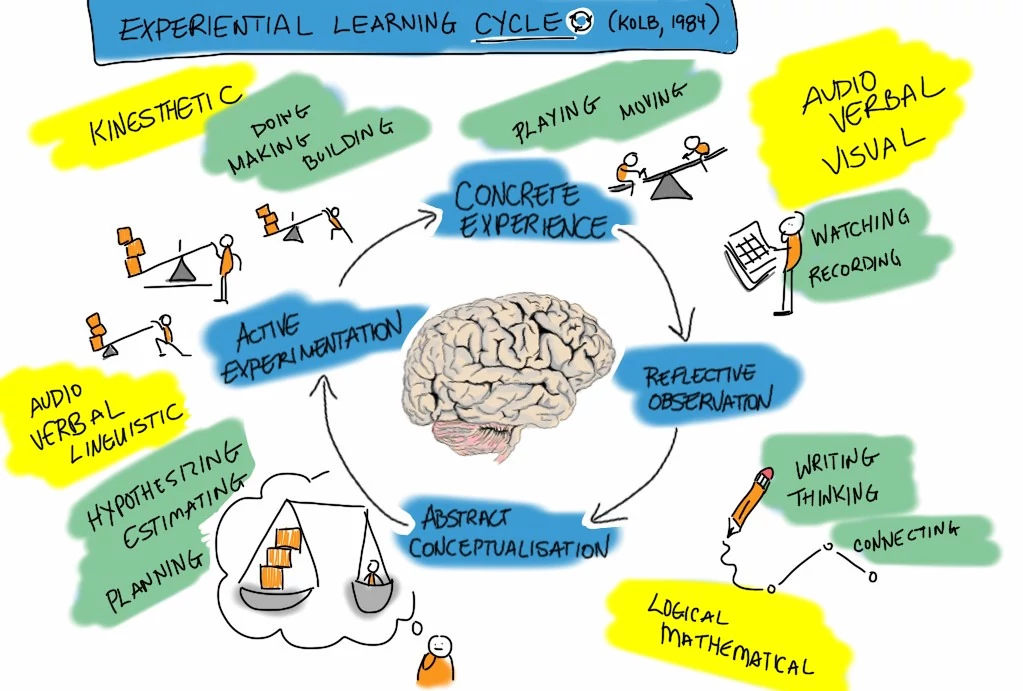
Kolb's Learning Cycle (Kolb's Learning Circle)
American David A. Kolb has divided this process into four phases: experience, contemplation, concept formation, and experimentation.
The learning circle is an element in Kolb's general theory formation regarding learning: Experience-Based Learning Systems.
Kolb's Learning Cycle (also known as Kolb's Learning Circle) is a method for understanding the processes of underline learning.
Kolb's learning circle
In the development of the learning circle, Kolb has been inspired by what he calls "the foremost intellectual ancestors for the theory of experiential learning." It is the American philosopher and educator John Dewey, the German-American gestalt psychologist Kurt Lewin and the Swiss biologist and epistemologist Jean Piaget. Kolb finds that all three focus on experiential learning as a process with four phases and thereby develop the learning circle.
- Experience: You set up your experiment while experiencing and observing what is happening. You get a concrete experience through it.
- Reflection: Once you have gained your experiences, you can begin to reflect on your observations and find out what happened and why. One tries to understand what happened as precisely as possible.
- Concept formation: In the third phase, the concept-forming phase, one tries to create a theory based on one's concrete experiences.
- Experiment: Once you have gone through the three previous phases, according to Kolb, you are ready to set up your own experiment, after which the learning circle starts all over again in a cycle.
Kolb believes that one must go through each of these four stages to get to the next one. This idea is illustrated in Figure 1 above. Below, the learning process is elaborated with i.a. Piaget's accommodation and assimilation.
Experience-based advantages and disadvantages of learning theory:
Consequences of the theory
- Students' active participation, problem-solving and critical thinking.
- Relevant and engaging learning activities
- Knowledge is constructed by testing ideas and methods.
- Based on previous knowledge and experience
- New knowledge is integrated into existing intellectual constructions
- Project work rather than consultation
- Inductive activity rather than deductive
- "Trial and error" rather than "trial and success"
- The teacher is a consultant rather than a communicator
Criticism
- The danger of value relativism, anything goes
- No common (or objective) usable knowledge criteria
- Poor opportunity for external control